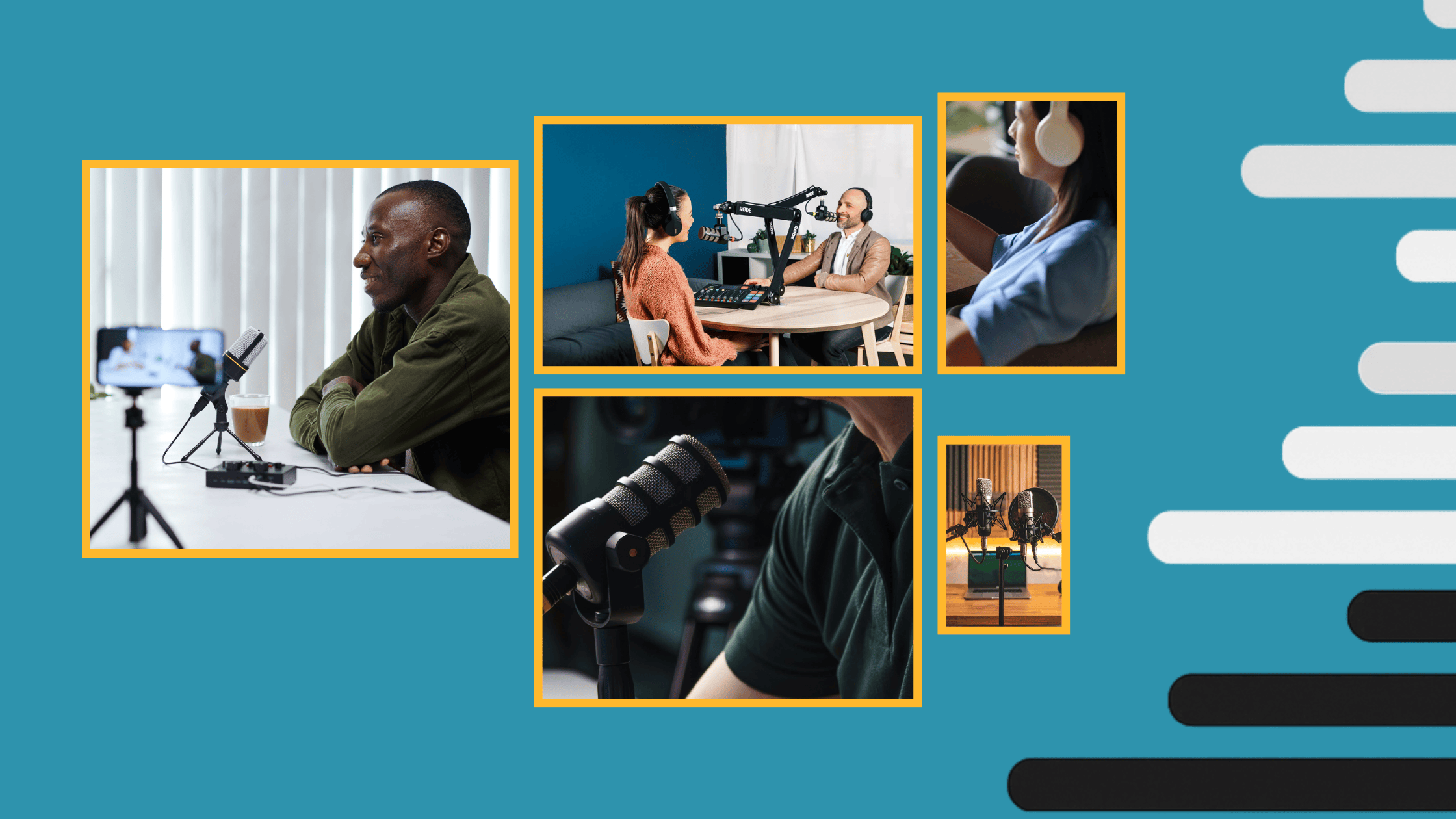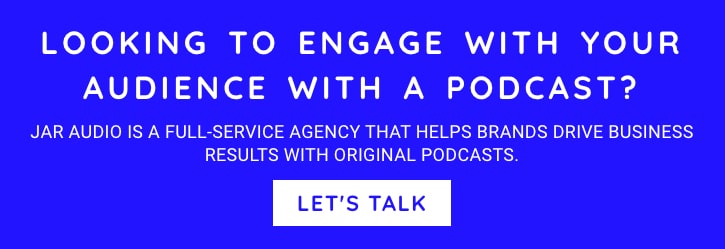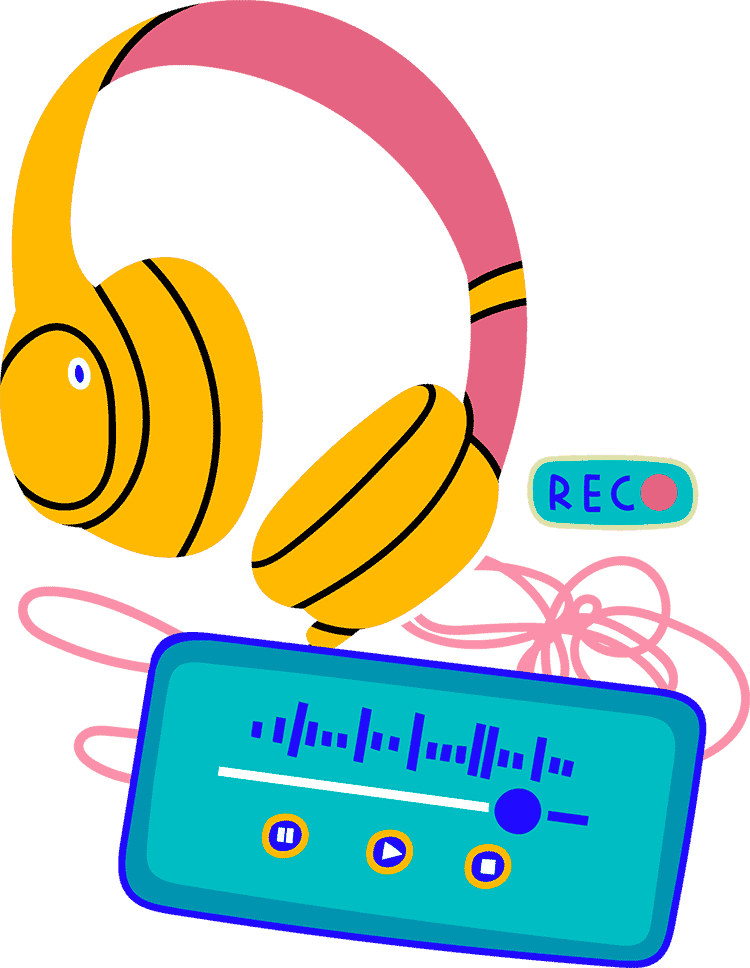What’s the problem with executives approving content but never creating it?
Most leaders sign off on content that others make, but they never create it themselves.
The message travels down the chain, gets polished, approved, and drained of pulse.
By the time it reaches an audience, it’s sterile. But when executives step behind the mic instead of hiding behind approval cycles, everything changes.
I’ve seen this with Wharton, Allianz Trade, and Barclays.
The question, then, isn’t if leaders should create content, it’s what breaks when they don’t.
What breaks when you separate the message from the messenger?
Three things collapse in every handoff:
-
Authenticity turns into performance.
When an executive reads talking points, audiences hear performance rather than belief. Podcasts outperform traditional media for trust: 57% trust podcast hosts vs. 12% for cable TV. People hear conviction.
-
Speed dies.
Every approval adds delay. In audio and video, timing is everything. Miss the moment, lose the audience.
-
The human disappears.
Brands don’t build trust, people do. A silent leadership team leaves a faceless company.
Who should (and shouldn’t) host a B2B podcast?
Not every executive belongs behind a mic. The best executive podcast hosts share five traits:
- Curiosity over control: For example, they listen more than talk.
- Conviction without a filter: For example, they speak like a human, not a press release.
- A clear point of view: They can answer, “What do you believe that most people don’t?”
- Stamina for consistency: They show up episode after episode.
- Respect for the craft: They prepare, engage and value audience time.
Executives who talk too much about “the brand,” or confuse visibility with leadership, belong as guests and not hosts.
What’s the ROI of executive-hosted podcasts?
Yes, executive time is expensive. But compare investment vs transaction:
- Message efficiency: One authentic conversation yields months of repurposable content. For example, soundbites, clips and thought-leadership posts rooted in the CEO’s real voice.
- Trust transfer: People trust people, not logos. Leadership hosting accelerates brand credibility.
- Strategic intelligence: Guests reveal unfiltered market insights. This is intel no analyst report can match.
- Talent magnetism: Authentic leaders attract top talent. Culture becomes a recruiting asset.
When one hour of conversation produces strategic intelligence, brand trust and reusable assets, it’s the most efficient hour an executive can spend.
Case Study: How Allianz Trade Increased Podcast Performance by 83%
Between seasons, Allianz Trade leaned into more authentic storytelling from their executives.
That move increased completion rates to 69% and drove an 83% download lift.
The change wasn’t louder promotion. It was vulnerability engineered safely.
How can enterprises make vulnerability safe for executives?
You don’t convince legal and comms to allow it, but instead you engineer safety by:
- Reframing risk: Show that vulnerability builds credibility, not liability.
- Building guardrails: Pre-approved topics, language filters, and post-recording reviews.
- Positioning authenticity as strategy: Tie storytelling to performance metrics.
- Starting small: Let early results prove the model.
The result: executives speak freely, without fear of missteps. And authenticity scales responsibly.
Why do different industries resist vulnerability differently?
- Finance fears liability → Solve with legal process.
- Academia fears reputation drift → Solve with peer proof and tone protection.
- Corporate leadership fears status loss → Solve by framing vulnerability as authority.
Different anxieties. One solution: design systems that turn authenticity into an asset.
(Read: How Podcasts Are Shaping Education and EdTech)
How do you coach executives to share from scars, not wounds?
Rule: A scar is processed; a wound is raw.
Before taping, ask yourself:
- Does this story make you laugh, wince, or sweat?
- Laugh = ready.
- Wince = maybe.
- Sweat = not yet.
End every story with learning, not grievance.
That’s how leaders stay human and credible.
What happens inside a company when the CEO becomes the voice?
When employees hear leadership on a podcast:
- Distance collapses. The CEO becomes human, not a Slack handle.
- Narrative aligns. Everyone hears the same tone and context.
- Culture gets modeled. Curiosity and humility become visible.
- Influence compounds. Curiosity outranks ego, and belief spreads faster than brand awareness.
That’s internal trust compounding. Its the invisible ROI no ad campaign can match.
When should a brand borrow authority instead of owning it?
Sometimes sponsoring someone else’s voice is smart because:
- You need credibility faster than you can earn it.
- Your audience trusts peers more than corporate voices.
- You’re testing a narrative before full ownership.
- You want to amplify others to show confidence.
Example: Barclays sponsoring Unreasonable Impact: Food with Christiana Musk. It worked because it was transparent, values-aligned, and audience-first.
(Read: JAR helped Unreasonable Group turn bold food system innovations into a narrative-driven podcast)
But if you never move from renting credibility to owning your voice, you’ll stay stuck in awareness mode. You’ll be loud but replaceable.
What are the failure modes of executive podcasts?
- Talking too much about the brand.
- Inconsistent cadence.
- Choosing the wrong executive.
When that happens, audiences hear the performance, not the person.
The executive mic effect only works when it’s real, consistent, and built on conviction.
Final takeaway: Why executive voices are a strategic asset
In a world of AI scripts and faceless messaging, nothing scales trust faster than a human voice. Especially the one at the top.
That’s not marketing.
That’s leadership communication strategy.
Roger transitioned from a 22 year career in advertising account management to co-founding JAR, a podcast podcast production agency. As CEO of JAR, he propels the company’s growth by prioritizing audience engagement and podcast marketing. Under his guidance, JAR flourishes with a global clientele, aiming to broaden its reach across North America and revolutionize brand connections through immersive storytelling.



